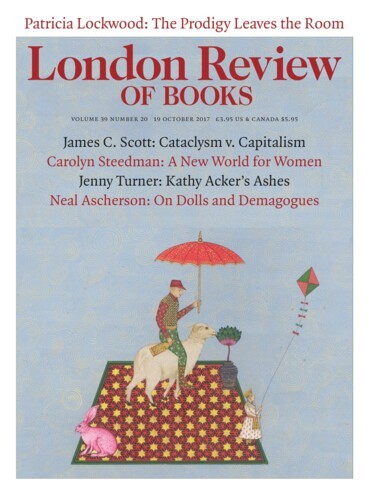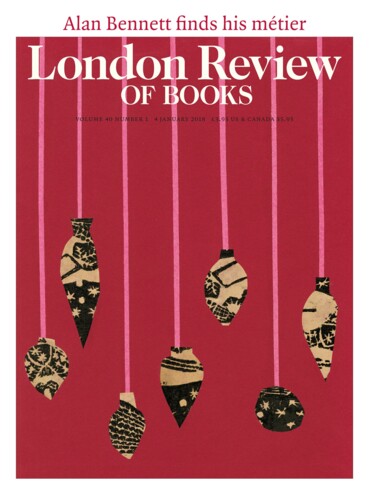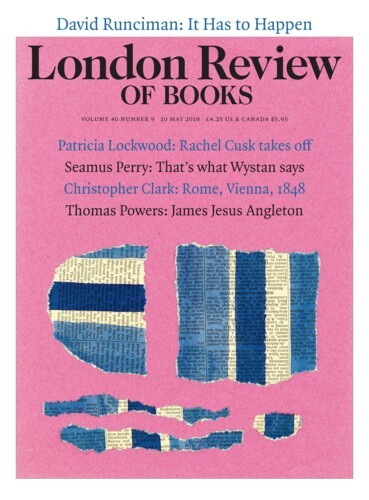Poem: ‘The Hornet Mascot Falls in Love’
Patricia Lockwood, 18 July 2013
Piece human, piece hornet, the fury of both, astonishing abs all over it. Ripped, just ripped to absolute bits, his head in the hornet and his head in the hum, and oh he want to sting her. The air he breathes is filled with flying cheerleader parts. Splits flips and splits, and ponytails in orbit, the calm eye of the panty in the centre of the cartwheel, the word HORNETS – how? –...





